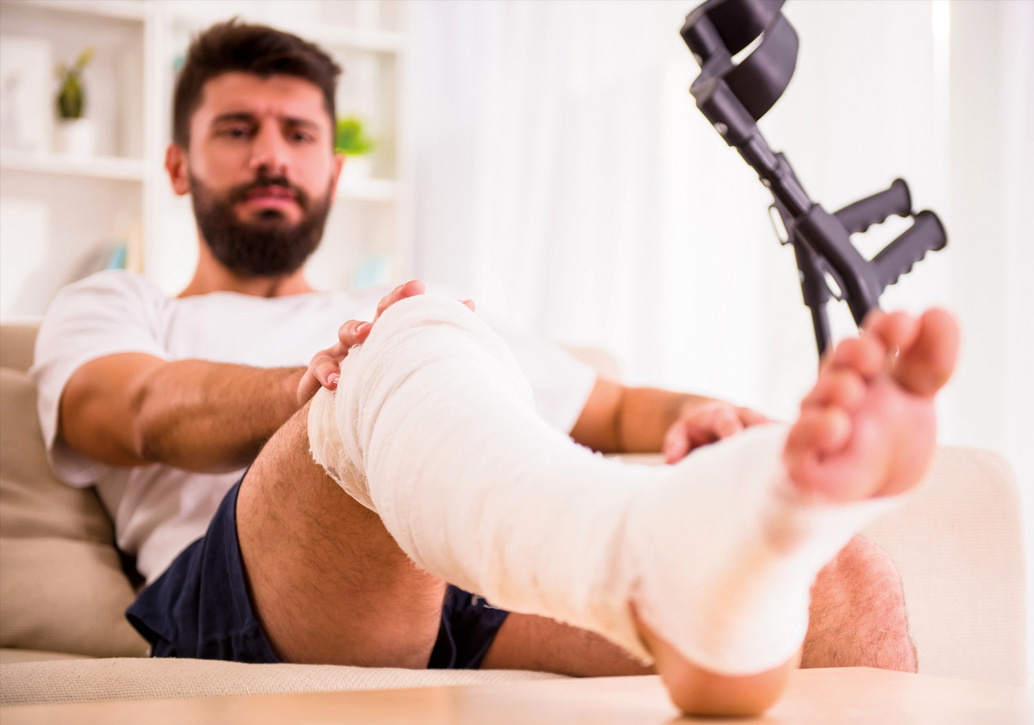
Can I Replace My Income If I Become Injured?
You may wonder whether taking a leave of absence from work to recover from injuries sustained in an accident will detract from your income. The truth is, anyone injured in an accident should be able to take time off work in order to concentrate on treatment and rehabilitation. In fact, almost anyone who has suffered injuries in an accident may access benefits as a partial income replacement when they are on medical leave.
Employment Insurance (EI) Sickness Benefits.
If, due to medical circumstances, you cannot work, you can apply for EI sickness benefits. To qualify, you must submit a medical certificate attesting that medical circumstances prevent you from working. These medical circumstances can include quarantine, injury, illness, or anything else that makes it impossible for you to work.
If you qualify for them, you can receive EI sickness benefits for up to 15 weeks, receiving 55% of your income for a weekly maximum of $638.
Ontario Disability Support Program Health and Disability Benefits (ODSP)
If you suffer from a disability, you could qualify for Ontario Disability Support Program (ODSP) health and disability Benefits. If you qualify, you can get up to $1,169 monthly for shelter and your basic needs. The actual amount you get will correspond to your individual situation. You can also access employment-support benefits through the ODSP as well.
You can receive ODSP health and disability benefits if you:
- are 16 or older;
- are permitted to work in Canada;
- live in Ontario; and
- have a mental or physical disability that could last beyond 12 months and that makes it hard for you to land or maintain a job.
If you are deemed financially eligible for ODSP health and disability benefits, you will receive—from your health care provider or physician—a disability-determination package to complete and submit.
Canada Pension Plan Disability Benefits
This is different from the retirement CPP benefit. To qualify for the Canada Pension Plan (CPP) Disability Benefit, you must meet the following criteria:
- be under 65;
- have a mental or physical disability that prevents you regularly from engaging in substantially gainful employment; and
- have an indefinite and long-term disability or one that is likely to be fatal (i.e., a prolonged disability). Your nurse practitioner or doctor will have to complete and provide a medical report certifying your disability.
- have contributed sufficiently CPP;
If your injuries prevent you from resuming your employment duties for an extended period of time (or even indefinitely), you could access Canada Pension Plan (CPP) Disability Benefits. Dependent children may also access the CPP Disability Benefit. The monthly base CPP Disability Benefit is $524.64, which subsequently increases based on the amount that you contributed to the CPP when you worked. In 2022, the maximum monthly payment amount was $1,464.83.
Workplace Safety Insurance Board Benefits
If you have become injured in the workplace, you could receive Workplace Safety Insurance Board (WSIB) Benefits. In fact, the WSIB loss-of-earnings benefit can pay 85% of your take-home pay. Furthermore, if you are an eligible injured worker, you can receive the following through the WSIB:
- benefit for loss of retirement income;
- benefit for non-economic loss;
- health-care benefits;
- help to return to work;
- services for people with occupational diseases; and
- services for seriously injured people.
As an eligible injured worker, you could qualify for WSIB benefits if:
- if their employer is covered by WSIB;
- they have a work-related injury or illness, and
- the injury or illness was reported to the WSIB by either the worker or their employer.
You will occasionally need to apprise your employer and the WSIB of your functional abilities.
Car Insurance – Income Replacement Benefit
If you have become injured due to a motor vehicle accident, you could access the Income Replacement Benefit (IRB) that is included in every Ontario Automobile Insurance Policy. To qualify, you must be unable to carry out the kind of tasks you could perform before the accident. To receive an IRB, you must complete and submit to you car insurance provider a Disability Certificate (completed by a doctor), Employer’s Confirmation (completed by your employer to confirm your salary), and an Application for Accident Benefits (you complete). After two years, you must demonstrate that you are substantially unable to perform any work suitable for you based on your education, experience, or training.
The IRB becomes payable after the first week of absence from a person’s employment. The IRB provides payment of 70% of a person’s gross pre-accident income, up to a maximum of $400.00 per week (unless optional benefits were purchased).
Non-Earner Benefit
Accident victims who, due to the severity of the injuries, cannot recover lost income can receive weekly benefits, known as non-earner benefits (NEB). According to the Insurance Act, R.S.O. 1990, c I.8, with respect to the NEB:
- (1) The insurer shall pay a non-earner benefit to an insured person who sustains an impairment as a result of an accident if the insured person satisfies any of the following conditions:
- The insured person suffers a complete inability to carry on a normal life as a result of
and within 104 weeks after the accident and does not qualify for an income replacement benefit.
- The insured person suffers a complete inability to carry on a normal life as a result of
and within 104 weeks after the accident and,
- was enrolled on a full-time basis in elementary, secondary or post-secondary
education at the time of the accident, or
- completed his or her education less than one year before the accident and was
neither employed nor a self-employed person after completing his or her
education and before the accident, in a capacity that reflected his or her
education and training. O. Reg. 34/10, s. 12 (1).
(2) The amount of a non-earner benefit is $185 for each week during the period that the insured person suffers a complete inability to carry on a normal life, less the total of all other income replacement assistance, if any, for the same week. O. Reg. 34/10, s. 12 (2); O. Reg. 251/15, s. 4 (1).
(3) The insurer is not required to pay a non-earner benefit,
(a) for the first four weeks after the onset of the complete inability to carry on a normal life;
(b) before the insured person is 18 years of age;
(c) for more than 104 weeks after the accident; or
(d) if the insured person is eligible to receive and has elected under section 35 to receive
either an income replacement benefit or a caregiver benefit under this Part. O. Reg. 251/15, s. 4 (2).
(4), (5) REVOKED: O. Reg. 251/15, s. 4 (2).
Short-Term Disability Benefits
Employers have the option of providing paid sick leave to their employees, so consult one of your employer’s human resources advisors to find out whether your employer does provide them. If so, your short-term disability (STD) coverage can grant you access to benefits to help cover lost income for short period of time, sometimes up to six months. You will usually need to submit your STD claim through the disability plan you have through your employer.
If your employer does not provide STD benefits, another option is Employment Insurance (EI) sickness benefits. To qualify for EI sickness benefits, you will need to have worked a minimum number of hours in a year and have exhausted all your sick leave.
Long-Term Disability Benefits
Once your EI benefits, STD insurance, and sick-leave benefits from your employer run out, you may qualify to receive long-term disability (LTD) benefits.
The majority of LTD plans replace up to 70% of your usual income. However, disability plans vary by employer. Some disability plans provide benefits for up to 24 months if you cannot resume the type of work you undertook prior to becoming disabled. You can continue receiving benefits after 24 months, but only if you aren’t able to be gainfully employed. Consult one of your employer’s human resources advisors to learn more. You may also seek legal advice from a personal injury lawyer if you have questions about whether you should qualify for coverage if your insurance company rejects your claim.






Follow Us